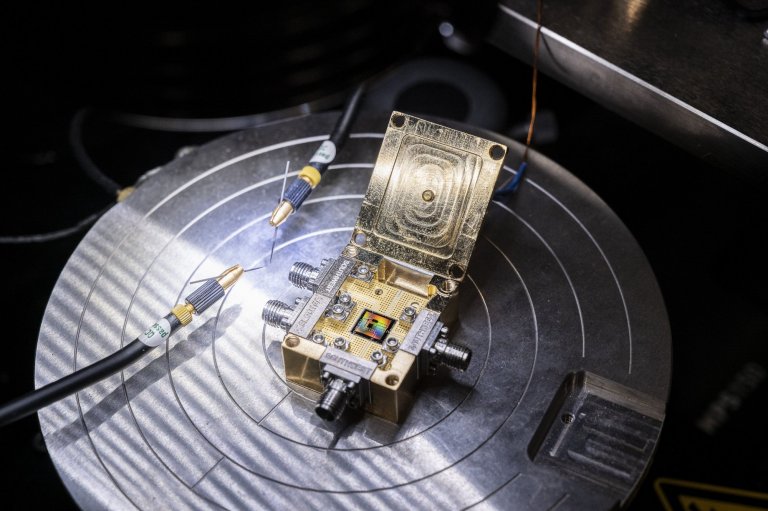
© Hubert RAGUET / Alice&Bob / LPENS / CNRS Images
View the mediaFolder
Medicine, civil engineering, telecommunications, artificial intelligence, etc. These are the areas that quantum mechanics could revolutionise in the coming years.

© Hubert RAGUET / Alice&Bob / LPENS / CNRS Images
View the mediaThe world's most powerful computers and supercomputers may soon be completely overtaken by a new generation of machines with extraordinary computing power, while incredibly accurate and sensitive quantum sensors could also expand the frontiers of what is possible in many different fields.
This emerging technological revolution is based on the laws of quantum mechanics, one of the greatest advances in physics of the 20th century. This theory describes phenomena at the scale of atoms, and allows a particle, atom or molecule to exist in different states simultaneously. France is proud of its historical achievements in this area, with several Nobel Prize and CNRS Gold Medal winners who have made significant advances in the field. This is precisely because France intends to maintain its position among the fierce international competition, that the government is launching a major Quantum Plan aimed at research, training and above all industry. All disciplines are involved in this national effort.
It is the perfect opportunity to immerse yourself in this mysterious world, where everything happens on an infinitely small scale, through our photo and video reports.
Our work is guided by the way scientists question the world around them and we translate their research into images to help people to understand the world better and to awaken their curiosity and wonderment.